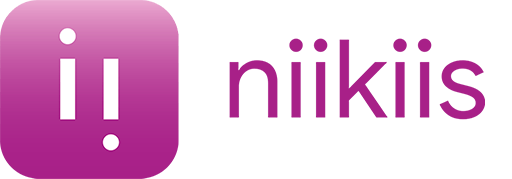We interviewed Alberto Chinchilla, an expert in boosting employer engagement and employer branding in teleworking.
Communication is an essential area in the successful implementation of employer branding and engagement policies. That is why we have interviewed an expert on the subject, Alberto Chinchillaa brand strategist and founder and director of the company beshared.
Alberto, welcome to the niikiis blog,
1. What do you think are the keys to success in creating an employer branding strategy in the middle of a pandemic?
A new employer branding strategy often means a cultural transformation in the company and this starts with two messages: training and a change of awareness.
In my view, these would be the most important keys:
- Generate a onboardingstrategy
- Define a communication protocol
- Promote a WELFARE PLAN
- Integrating telework
- Projecting purpose and values
- Create a programme of team training and intrapreneurship
- Define an action plan aimed at equality, diversity and inclusion
- Activate the communicating internal talent
- Develop social media guidelines for the team
- Corporate Social Responsibility - CSR
2. Which indicators are most commonly used by companies to measure the impact of their communication strategies?
Of course, notoriety and, therefore, the reputation of the brand. Nowadays, the engagement generated on social networks through brand communication is also very important.
3. What will be the communication trends in 2021?
Today, communication focuses on issues that refer to the branding of the brand. The purpose, the values, the differential value proposition, the mission, the vision and its commitment to social, natural and solidarity causes, etc. And, of course, the central theme: people. It is time to give a voice to talent in companies.
4. How would you define effective communication?
Communication that takes care of the language and adapts it to the type of audience and manages to connect with them through an idea, experience or feeling. Communication that is clear, concise and direct.
A communicator must contemplate, communicate, feel and persuade, but above all know how to listen. In addition, he or she must be a sociologist and an observer of behaviour and habits.
5. Finally, what tips would you give someone to communicate effectively remotely?
You must prepare your scenario. Research and know well who your audience or receiver of the message is going to be. Develop a script or rundown with the ideas and structure them into messages. Of course, you must pay special attention to the "props" that surround you: image, background, light, sound, etc. Any detail makes a difference.
Thank you very much Alberto!
Dear reader, thank you for your time. Putting the employee at the centre can be a challenge but it is also a great benefit for the company, we can help you! Communication best practice is more than an email, more than keeping in touch in a remote meeting by teleworking the team or sharing meetings in the office. It is more than tools or changes in information management. It is a new way of thinking and a new approach to internal communication and it is very beneficial for the company in terms of employee well-being and productivity. Let's talk more about it. hereSee you in the next blog post!


 Employee database
Employee database  Documents and e-signature
Documents and e-signature  Reporting and analytics
Reporting and analytics  Payroll and incidents
Payroll and incidents  Time and Attendance Software
Time and Attendance Software  Shifts and task list
Shifts and task list  Absences & time-off
Absences & time-off  Workflows
Workflows  Expense management
Expense management  Recruitment and selection software
Recruitment and selection software  Onboarding
Onboarding  Training and procedures
Training and procedures  Internal communication
Internal communication  Performance assessment software
Performance assessment software  HR surveys and forms
HR surveys and forms  Chatbot
Chatbot 